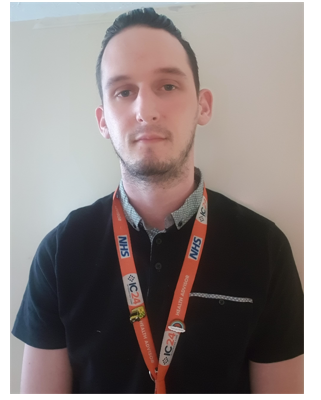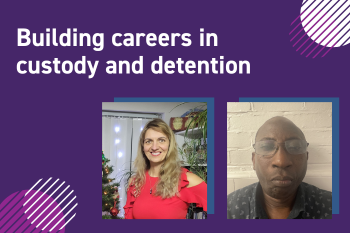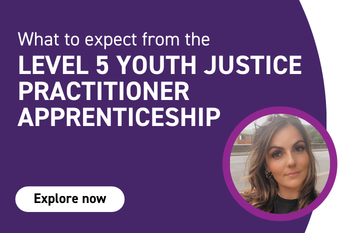“The best part of my apprenticeship is the feeling of going home and knowing you have made a difference,” says Dan Carter. “One minute you could be assessing a patient for a sore throat and the next you are sending an ambulance and giving live-saving instructions.” As a Health Advisor with a not-for-profit charity, IC24, Dan’s role in Emergency Contact Handling involves directing people where to turn in a timely manner during an urgent medical problem where they are unsure how to proceed. As well as working in the not-for-profit sector, Contact Handlers work for ‘blue light’ organisations, like the police, fire and rescue, or ambulance of NHS integrated urgent care organisations.

Nowadays, as well as the traditional route to an apprenticeship after leaving school or college, many use apprenticeships as a pathway to a new career. For example, immediately before beginning his apprenticeship, Dan worked as a chef within the food industry – “I worked in a variety of jobs from retail, admin, HR and senior management roles but, over the years, I have always been keen to help people and to make a difference. When I saw the job advertised online, it really stood out to me as something I could see myself doing, and the apprenticeship has enabled me to make a career switch”. Especially as a result of the pandemic, healthcare services are feeling additional pressure including within Emergency Contact Centres and people ready for this type of career change are helping relieve some of the additional pressure.
Certificate in Emergency Contact Handling
We offer a Level 3 Certificate in Emergency Contact Handling qualification. This qualification is competence based and involves the assessment of skills, knowledge and understanding in the real working environment
Explore QualificationApprenticeship training focuses on developing knowledge, skills and behaviours that enable employees to excel in a given profession. Dan says, “Learning is the best part of the apprenticeship, gaining knowledge and applying it in the job you are doing is great – things become so much easier to understand over time”. Turning to the type of learning Dan has been doing, this has varied greatly – “I have received teaching sessions and completed assignments based around core elements of my job, which I’ve been able to apply within my role. I’ve learned ways to engage and communicate with callers allowing me to build rapport with them and how to comply with data protection, follow health and safety and make decisions on the circumstances that have arisen. I have also learned about the different technologies used within contact handling roles”.
Emergency Contact Handling End-Point Assessment
As Dan nears the end of his apprenticeship, like all apprentices in England, he will complete an End-Point Assessment, the final step in gaining his qualification. He is currently preparing for this by working through content on a learning platform provided by his employer and by completing online modules. He also has time allocated within his schedule to complete his functional skills level 2 in English and maths; at least this level of English and maths qualifications are required to achieve the apprenticeship qualification.
End-Point Assessment FAQs
Learn more about End-Point Assessments in our frequently asked questions
Explore FAQsPost-Apprenticeship Career Prospects
After completing his apprenticeship, Dan hopes to move up within his organisation – “The next role for me would be to be health advisor coach. Recently, I’ve become a trauma risk practitioner within the company so have gained vital skills there, which will help me going forward. I also like the idea of working face-to-face with patients in the future, such as in a support worker role”. Opportunities for qualified Contact Handlers are plentiful; for example, some go on to work as team leaders, managers, and duty managers, and others move into careers within the ambulance service of the police. Many employers also support their staff to progress as their experience and skills build over time. Dan says, “My employer has been really supportive within my job role, and there are always opportunities to grow and develop within the company”.
Dan’s words of advice to anyone considering an apprenticeship are: “Be yourself and run at your own pace. Network and collaborate with those around you, and listen to advice. Overall, be confident and believe in yourself. Being able to make a difference in a person’s life makes it all very worth it!”
- www.instituteforapprenticeships.org/apprenticeship-standards/emergency-service-contact-handling-v1-0
- https://researchbriefings.files.parliament.uk/documents/SN06113/SN06113.pdf
- www.bmj.com/content/375/bmj.n2664
- www.birminghammail.co.uk/black-country/ambulance-service-bring-100-extra-21997013
- https://recruitment-dcp-dp.org/devon-cornwall-police-staff/devon-cornwall-police-contact-officer/
- https://www.healthcareers.nhs.uk/explore-roles/ambulance-service-team/roles-ambulance-service/emergency-medical-dispatchercall-handler





